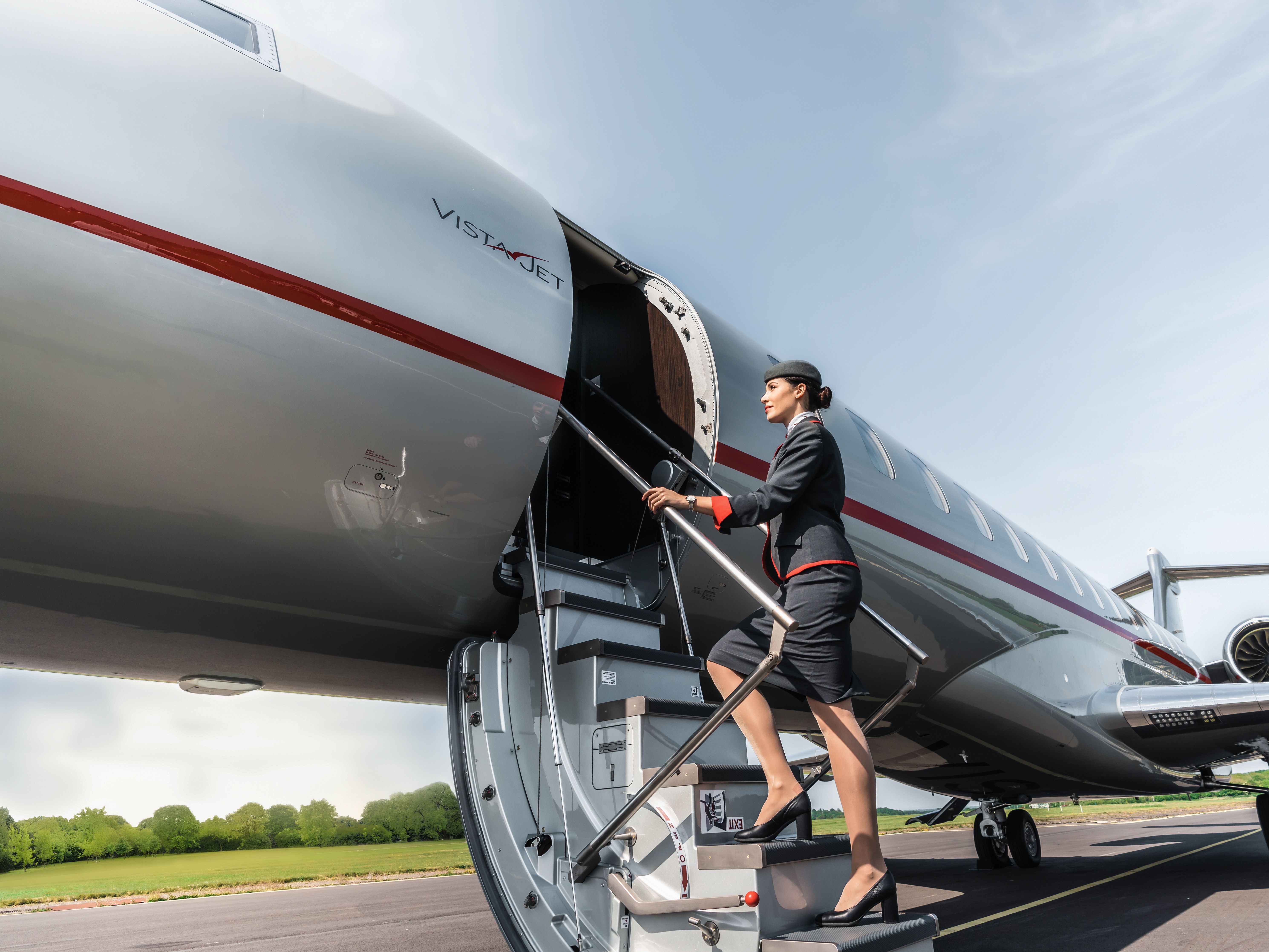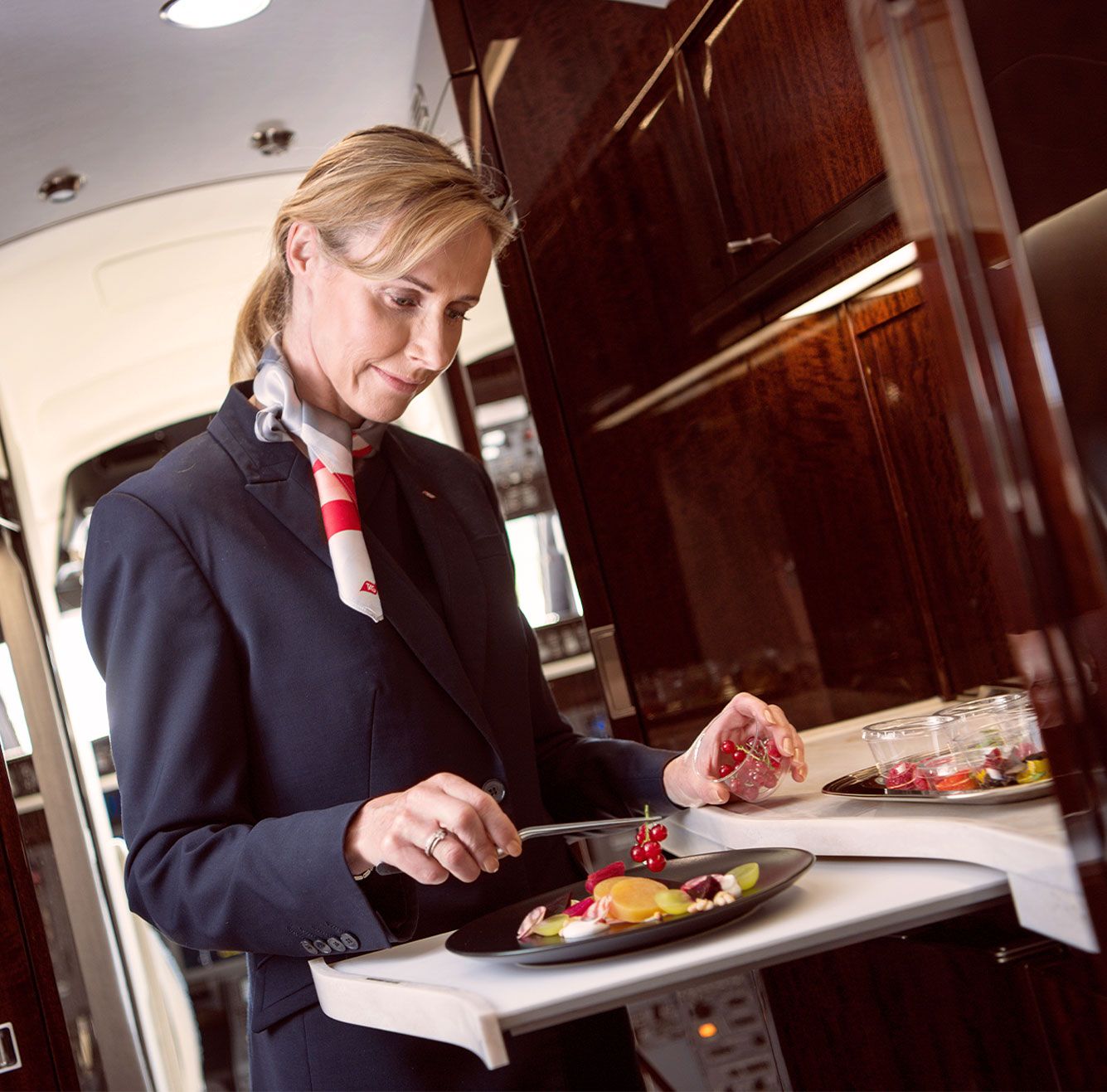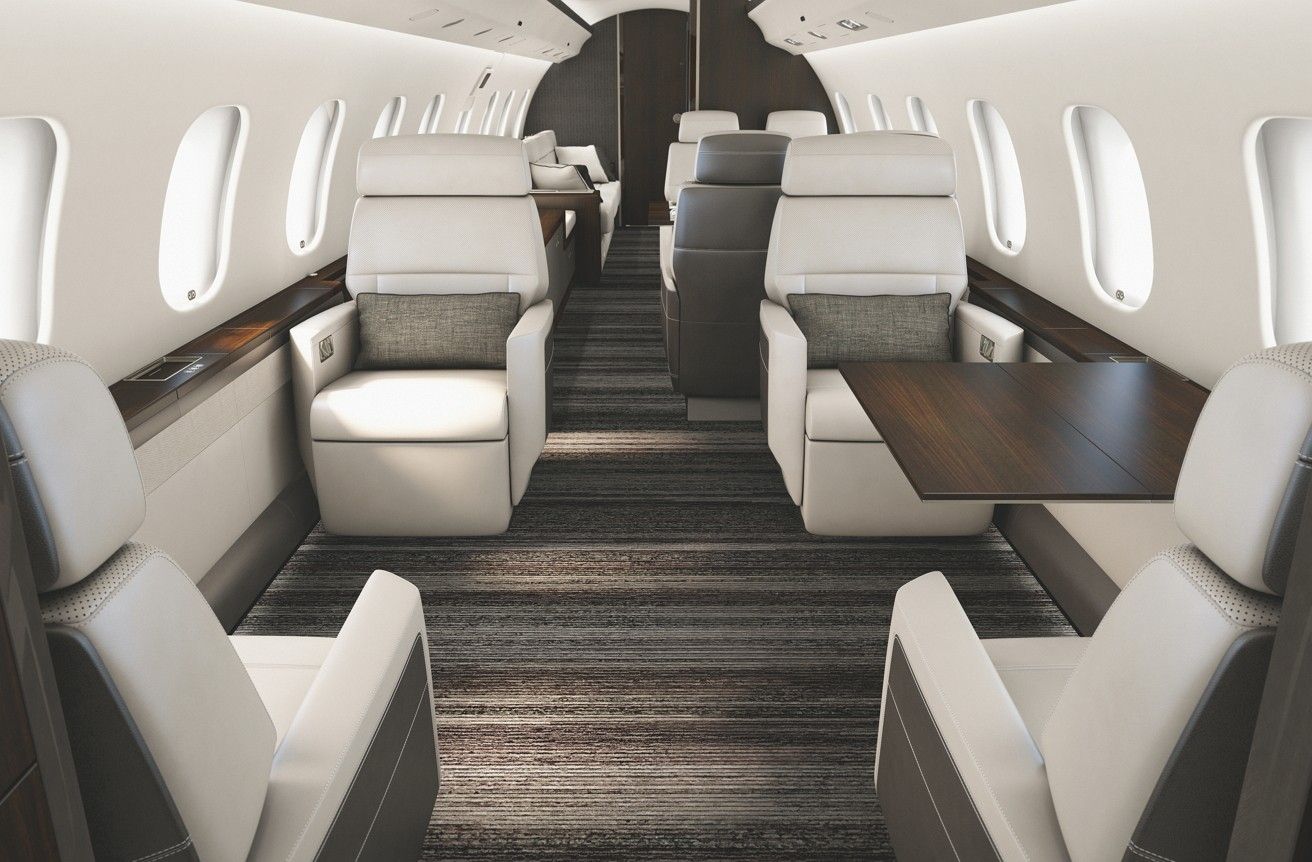Many commercial cabin crew later in their careers, look to work on private jets, a much coveted role. Often they don't understand what a completely different role it is, and it is very demanding. One thing remains the same, and that is safety always being the first priority, followed by the best possible service. So let's take a look at some of the differences between working on a commercial aircraft and working on a private jet.
Solo flying
Most of the time you will be flying alone and have sole responsibility for safety and service in the cabin. This can be tough as you have to prepare all the meals, drinks and in between service as requested as well as making up beds, looking after the flight crew and any passenger request. There is no team to help when the workload is high. If there is any kind of emergency onboard, you also have the responsibility to be able to tackle that and take care of the passengers. Larger aircraft types will have more crew depending on the aircraft type.
Catering
On commercial aircraft, the meals are pre-plated and preloaded on the aircraft prior to the flight and served at a specified time. On private jets, the cabin crew devise the menu according to the passenger profile and any special requests and then order catering from a specialized VIP caterer. This is delivered prior to the flight, and it can be difficult to find space for it all on a private jet.
Service onboard
On commercial aircraft passengers tend to be served at a set time and in economy all on one tray. Business class is pre-plated on the ground by the caterer and served as individual meals by the cabin crew. First class is on demand and plated by the crew member in the galley, following specific guidelines.
On the private jet, the meals are then cooked and plated by the crew member to five-star restaurant quality, service is on demand, whatever the passenger wants whenever they want it - which can be challenging as solo crew with up to 19 passengers. Meals can be served silver service style or buffet style or family style - there are also cultural aspects to consider, especially in the Middle East. There will also be other types of service, such as caviar service, afternoon tea, canapé service and Arabic coffee service. A knowledge of fine wines, cocktails and barista skills are helpful.
On the ground duties
The aircraft pantry must be restocked, so you will often find yourself buying stock on the ground or ordering items in, in preparation for a flight. As the passengers are VIPs, you will also get many strange requests and for unusual items such as a certain brand of tea, a popcorn maker or certain types of champagne and caviar that can be difficult to resource at the last minute. After every flight, the aircraft must be completely cleaned and polished by the crew member, with no fingerprints and must be immaculately kept.
Pay
Private jet cabin crew generally earn more than double that of commercial cabin crew, but it differs company to company. There is usually a per diem payment, for each night spent away from base.
Training
Depending on the aircraft type and where the aircraft is registered will affect the training, if received at all. Some crew receive no training and pick it up as they work, as aircraft under 19 seats do not require a trained cabin crew member in many countries. Some companies provide extra trainings, not only in safety and service but butler training, sommelier training and nanny training. It is very variable!
Stay informed: Sign up for our daily and weekly aviation news digests.
Hours
There are no flight time limitations as such for private jet cabin crew, so if your shift is extended, there is not much you can do about it. Some private jet cabin crew have rosters of 20 days on, ten days off or two months on, one month off, and you are on call during your roster period. Some crew are on permanent standby all year round and can be called at any time to attend to a flight.
Perks
Traveling to unusual destinations as well as popular cities, meeting interesting people and tasting some excellent catering are nice perks. Healthcare and life insurance are normally covered by the operator. Sometimes, private jet cabin crew get tips too, but it's never expected.




